Why buyers shouldn’t worry about Bangladesh’s unrest

Anybody who has been following the news headlines will be aware that there has been some civil unrest and demonstrations in Bangladesh during the past few weeks. Some of these have been political and some relate to the review of minimum wage for garment workers.
Protests have intensified across Dhaka since the fourth meeting of the country's wage board on October 22, where garment factory owners proposed to increase the minimum wage to TK 10,400 ($94). Labour rights groups and unions want more than double that level, and so, we have reached a stalemate, with protests ensuing.
In the meantime, general elections are scheduled to be held in Bangladesh in January. Election time is always a tense period for this country. The fact that many are also taking to the streets for political reasons, while demonstrations for wages are ongoing, means that in many ways we have a "perfect storm," which quite understandably has captured global headlines.
How bad are things and is Bangladesh still open for business? I will provide five clear reasons why, firstly, the situation in Bangladesh is not as serious as it is being portrayed in some media outlets, and why Bangladesh remains open for business. International buyers can rest assured they can place orders here with confidence.
Experienced buyers I speak to understand the politics of Bangladesh; they recognise that our country does not always have the political stability of some Western countries. They also see that we always manage to resolve our political differences and that, barring a few bumps in the road, the past five decades have been a source of relative political stability in Bangladesh.
First things first, Bangladesh is not like most Western countries. Modern Bangladesh was born in 1971 following the Liberation War with Pakistan. Even since then, our political environment has not always been stable, and there have been regular periods of volatility, particularly around election time. Sometimes, these involve protests and demonstrations, and occasionally, there are pockets of violence.
None of this is ideal, but it is also nothing we have not seen before. Experienced buyers I speak to understand the politics of Bangladesh; they recognise that our country does not always have the political stability of some Western countries. They also see that we always manage to resolve our political differences and that, barring a few bumps in the road, the past five decades have been a source of relative political stability in Bangladesh.
As of now, the overwhelming majority of factories remain open, the ports remain open and are running as normal, and demonstrations are limited to just a few pockets of activity.
Second, the global pandemic and the necessary closure of some factories was arguably the biggest logistical hit to Bangladesh's ready-made garment industry since its formation in the 1970s. Global orders fell off a cliff, and many factories were forced to temporarily close down. But you know what? We survived and came through. I cannot explain precisely how but somehow we just managed. Ours is a highly resilient industry; there is a never-say-die spirit among factory owners and a togetherness that I do not believe you will find in any other garment sourcing hub globally. In short, if we can survive the pandemic, the current unrest is a walk in the park.
The third point: our industry is well prepared for unrest around election time and when the national minimum wage is under review. In recent weeks, factory owners and industry leaders have come together and worked collaboratively to ensure business as usual. The Bangladesh government is also on the same page, and this is crucial. Garment export is by far our most important industry. The government will always do everything in its power to enable its continuous operation.
Fourthly, let's discuss the information being published about Bangladesh and the current situation. While we have a very strong media in Bangladesh and diligent journalists, we also have broad issues centring misinformation. I hear rumours that some bad actors are sharing information online which is distorting the current picture in Bangladesh, exaggerating or sensationalising the current challenges.
My message here would be to look at the overall situation and consider the historical context. To reiterate, the situation now is nothing new and nothing to worry about. It is something we as an industry have seen before and which we can manage.
Finally, I would like to make a point about culture and garment sourcing. In each country a buyer enters, they will find a different type of culture, often one that differs greatly from what we see in Western countries. In India, Pakistan, China, Cambodia and, yes, Bangladesh, conflict resolution is not always what one is familiar with. That's the nature of modern sourcing in what is very much a globalised industry, where each sourcing hub has its own area of expertise and specialism.
That is not to say that we should not strive to be better and that the current civil unrest we have witnessed is welcome. It is not. But I would call on all sourcing executives to look at the bigger picture and "accept the rough with the smooth" when it comes to sourcing.
Bangladesh remains a world-class sourcing destination, based on quality, responsiveness and price competitiveness. The current challenges are a bump in the road. We remain open for business.
Mostafiz Uddin is the managing director of Denim Expert Limited. He is also the founder and CEO of Bangladesh Denim Expo and Bangladesh Apparel Exchange (BAE).
Views expressed in this article are the author's own.
Follow The Daily Star Opinion on Facebook for the latest opinions, commentaries and analyses by experts and professionals. To contribute your article or letter to The Daily Star Opinion, see our guidelines for submission.

 For all latest news, follow The Daily Star's Google News channel.
For all latest news, follow The Daily Star's Google News channel. 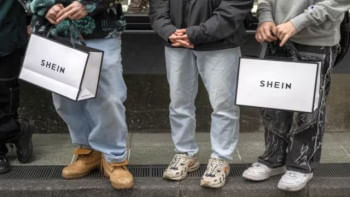
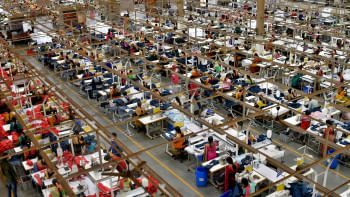
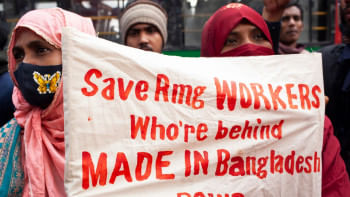


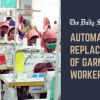
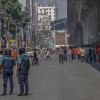

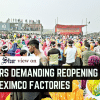



Comments